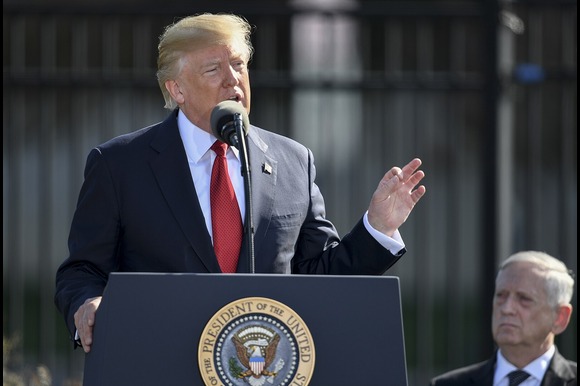A New York appeals court has overturned a $500 million (£372 million) penalty previously imposed on former U.S. President Donald Trump in a civil fraud case, though it upheld the ruling that found him liable for inflating the value of his business assets to secure favorable loans.
The penalty had originally been set at $355 million by Judge Arthur Engoron, but with interest, it ballooned to over $500 million. However, in a detailed decision released Thursday, judges from the Appellate Division of the New York Supreme Court found the financial penalty to be excessive and potentially unconstitutional.
While the court maintained that Trump was indeed liable for committing fraud, it concluded that the magnitude of the fine was unjustified under constitutional protections that prohibit excessive punishment. Judge Peter Moulton wrote in the opinion, “While harm certainly occurred, it was not the cataclysmic harm that can justify a nearly half billion-dollar award to the state.”
Trump responded to the ruling on his social media platform, Truth Social, claiming the outcome as a “total victory.” In his post, he praised the appellate court, writing, “I greatly respect the fact that the Court had the Courage to throw out this unlawful and disgraceful Decision that was hurting Business all throughout New York State. It was a Political Witch Hunt, in a business sense, the likes of which no one has ever seen before.”
However, the New York Attorney General’s Office, which brought the lawsuit, also framed the appellate decision as a win. Although the financial penalty was reversed, the court upheld Trump’s liability and preserved several non-financial sanctions.
In a statement, the attorney general’s office said, “The judges affirmed the well-supported finding of the trial court: Donald Trump, his company, and two of his children are liable for fraud.” It added, “It should not be lost to history: yet another court has ruled that the president violated the law, and that our case has merit.” The office intends to appeal the removal of the financial penalty to the New York Court of Appeals, the state’s highest court.
The civil fraud case targeted Trump, his adult sons, and the Trump Organization, with accusations of “persistent and repeated fraud.” Among the original penalties imposed by Judge Engoron were bans preventing Trump from serving as a company director or obtaining loans from financial institutions in New York for three years. Thursday’s decision did not overturn those nonmonetary sanctions.
The 323-page appellate ruling featured three detailed judicial opinions and revealed internal disagreements among the five-judge panel. While several judges agreed that Attorney General Letitia James was acting within her authority in pursuing the case, one judge believed it should have been dismissed outright, and two others expressed support for a new trial of narrower scope. Despite their concerns, those two judges ultimately supported throwing out the financial penalty “for the sole purpose of ensuring finality,” as Judge Moulton explained.
Moulton also wrote that the financial penalty violated the Eighth Amendment of the U.S. Constitution, which prohibits “excessive fines” as well as “cruel and unusual punishments.” He added, “American voters have obviously rendered a verdict” on Trump’s political career, and “this bench today unanimously derails the effort to destroy his business.”
The case stems from a 2023 ruling in which Judge Engoron found that Trump had misrepresented the value of his assets by hundreds of millions of dollars. A follow-up trial in 2024 was held to determine appropriate penalties. One notable example cited by the court was Trump’s claim that his Trump Tower penthouse was nearly three times its actual size.
Trump and his legal team have long argued that the case, brought by James—a Democrat—was politically motivated. His son, Eric Trump, who was also named in the lawsuit, celebrated Thursday’s ruling in a post on social media. “After 5 years of hell, justice prevailed!” he wrote.






